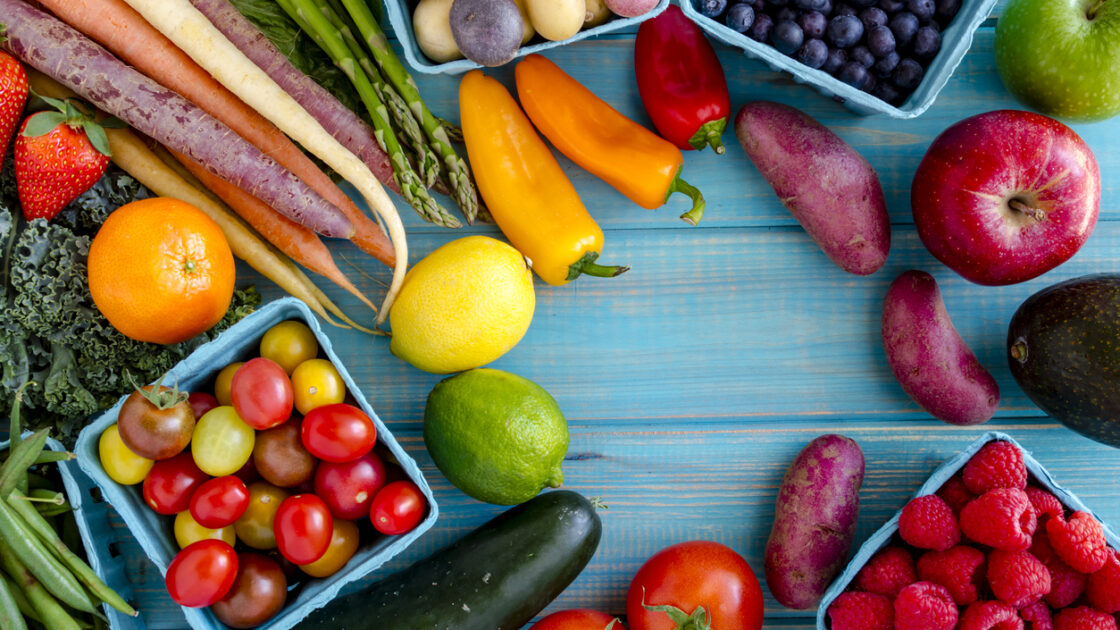10, Not 5, Servings of Fruits and Vegetables a Day Ideal for Health, Study Finds

A new study suggests that people should be consuming closer to ten portions of fruits and vegetables a day for ideal health, instead of the five currently recommended by the World Health Organization.
New research published in the International Journal of Epidemiology by scientists from Imperial College London has found that the greatest benefit from eating fruits and vegetables comes from eating 800 grams (about 1 3/4 pounds) of fruits and vegetables daily. The researchers found that this amount was associated with a 24 percent reduced risk of heart disease, a 33 percent reduced risk of stroke, a 13 percent reduced risk of total cancer, and a 31 percent reduction in premature death.
Researchers calculated that by increasing fruit and vegetable portions to this degree, 7.8 million premature deaths could be prevented across the globe annually.
These results came from a meta-analysis of 95 studies from around the world, including up to 2 million people, 43,000 cases of heart disease, 47,000 cases of stroke, 81,000 cases of cardiovascular disease, 112,000 cancer cases, and 94,000 deaths.
Apples, pears, citrus, green leafy vegetables, and cruciferous vegetables were found to be among the most beneficial, with the greatest reduction in cancer risk associated with green, yellow, and cruciferous vegetables.
“We need further research into the effects of specific types of fruits and vegetables and preparation methods of fruit and vegetables,” explains lead study author Dr. Dagfinn Aune. “We also need more research on the relationship between fruit and vegetable intake with causes of death other than cancer and cardiovascular disease.”
Certain publications, including the Guardian, reacted to this study negatively, noting that many people already have a hard time getting their five portions a day; recommending ten makes the endeavor seem impossible to these people. IFL Science! reports that, “It is thought that fewer than one-in-three currently meet this target, so telling people that they should really be eating twice this is probably going to have little actual impact on people’s habits.”
The study authors, however, still support the five-a-day recommendation and are not suggesting a policy change. They even found that eating as little as 200 grams (seven ounces) of fruit and vegetables a day was associated with a 16 percent decrease in risk of heart disease, 18 percent decrease in risk of stroke, and 13 percent decrease in risk of cardiovascular disease.
Related on Organic Authority
Beautiful on the Inside: ‘Ugly’ Fruits and Vegetables May Pack More Nutrition, Says Research
Whole Foods Market to Start Selling ‘Imperfect’ Fruits and Vegetables at Reduced Prices
EPA Proposes Ban on Common Pesticide Used on Fruits and Vegetables

